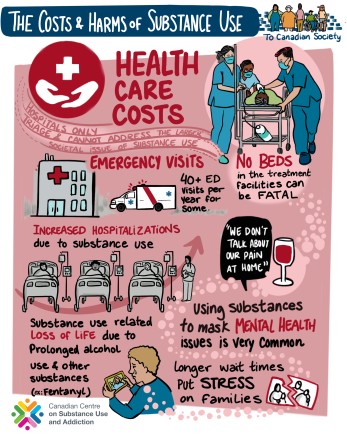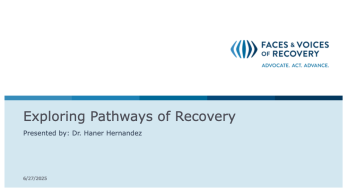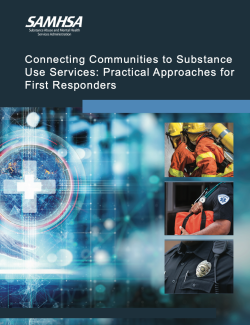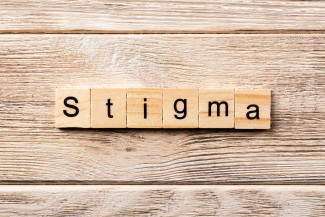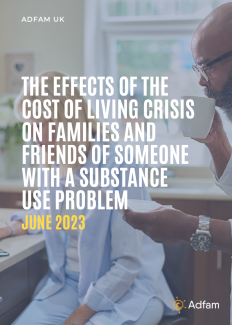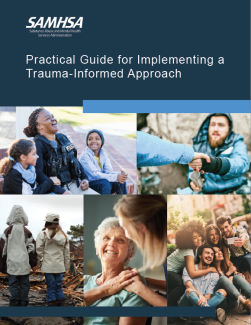
Cerca
Connecting Communities to Substance Use Services: Practical Approaches for First Responders
Abstract
During their day-to-day work, first responders such as law enforcement officers, firefighters, and emergency medical services (EMS) personnel often encounter people who use drugs (PWUD), including alcohol, opioids, stimulants, and...
Extended-release pharmacotherapies for Substance Use Disorders in incarcerated populations
A history of harmful substance use or dependence is common among people in Criminal Justice Systems (CJSs) around the world. The time after an individual has left the CJS is of elevated risk for those with harmful substance use - with high...
Sex and gender differences in HCV risk and cascade of care among people who inject drugs
This seminar explored why it is important to study sex and gender differences in people who inject drugs, with reference to examples relevant to hepatitis C risk and the cascade of care. It included an overview of why we study sex and...
Pharmacological management of acute methamphetamine withdrawal
About the webinar:
This seminar provided an overview of Liam’s PhD studies, beginning with a systematic review and meta-analysis of previously researched pharmacological treatments for methamphetamine withdrawal.
It then proposed a novel...
Stigmatising imagery for substance use disorders
Stigma is a barrier to treatment for individuals with substance use issues. Although there has been research conducted exploring the impact of stigmatising language, less is known about the effects of stigmatising images.
This qualitative...
Bi-Monthly Webinar: ISSUP Nigeria Knowledge Update Series (Eighteenth Session)
Children and families affected by parental drug use
Addiction Nursing Competencies: A Comprehensive Toolkit for the Addictions Nurse
Abstract
With the increased role of nurses in caring for patients with substance addiction, there was a clear need to develop the Addiction Nursing Competencies to guide and support the nursing workforce.
A literature search revealed a...
The effects of the cost of living crisis on families and friends of someone with a substance use problem
The impact of addiction on family finances is multiple.
It is therefore no surprise to find that the cost of living crisis is causing additional difficulty and strain to families affected by substance use, adding further complexity to the...
The driving factors facilitating non-medical use of tramadol: a qualitative study of Nigerian youths
Abstract
Background: The paper explores the opinions of Nigerian youth regarding their reasons behind the use of tramadol for non-medical purposes and learns their preferences in choosing tramadol. Methods: We conducted In-depth Interviews...
Journée mondiale de la drogue au Togo
Dans le cadre de la célébration du 26 juin ..
L'ONG RAPAA..a effectué un passage dans l'émission télévisée la Poz de la TVT avec la participation d'un membre du CNAD
Hier 26 juin l'ONG RAPAA a aussi animé une emission en langue Ewe avec...
Support. Don't Punish International Day of Action
A global advocacy campaign calling for drug policies based on health and human rights.
Support. Don’t Punish is a global grassroots-centred initiative in support of harm reduction and drug policies that prioritise public health and human...
International Day Against Drug Abuse and Illicit Trafficking
Grenada's video submission to commemorate International Day Against Drug Abuse and Illicit Trafficking.
Guida pratica per l'implementazione di un approccio basato sul trauma
La guida si concentra in particolare sugli strumenti e le strategie per l'implementazione di un approccio informato sul trauma. Questa guida evidenzia la necessità di una valutazione organizzativa della prontezza e della capacità prima di...
ISSUP POSTER FOR LISBON ADDICTIONS 2022: STUDY ON SUBSTANCE USE AND THE ROLE OF FAMILIES IN KAZAKHSTAN, PAKISTAN AND UKRAINE
The fourth European Conference on Addictive Behaviours and Dependencies took place in Lisbon from 23–25 November 2022.
Under the overarching theme of Global Addictions, LxAddictions22 showcased cutting-edge research to help characterise...
The ASPIRE Standards: Taking a Step Towards Quality Assurance in Drug Prevention in France – A Case Study
INTRODUCTION: In the favourable political climate of the mid-2010s, the standards for Assessment & Selection of Prevention programmes Issued from the Review of EDPQS (ASPIRE) were developed to support project planning in drug prevention.
M...
National Implementation of Quality Standards in Prevention and Treatment Services for Substance Use/ Addictions – A Case Study of Cyprus
INTRODUCTION: The Cyprus National Addictions Authority (NAAC) is the main coordinating body for all matters related to licit and illicit substances as well as pathological gambling in Cyprus and it is responsible, inter alia, for the...
Standard di qualità del trattamento dei disturbi da uso di sostanze in Lituania 1992-2022: dalle iniziative di base alle strategie nazionali
L'attuazione di standard di qualità nel trattamento dei disturbi da uso di sostanze in Lituania non è ben documentata in letteratura. Obiettivi: Descrivere il processo di sviluppo degli standard di qualità dalle iniziative di base alla loro...
Stress and substance use among sexual and gender minority individuals
Sexual and gender minority individuals face marked disparities in substance use.
This narrative review explores research on substance use in sexual and gender minority communities. The authors define the sexual and gender minority...
The social context of drinking among LGBT+ people
Professor Carol Emslie and David Barbour discuss research on gender, identity and drinking, and the disproportionate impact of substance use in the LGBT+ community.
Share the Knowledge: ISSUP members can post in the Knowledge Share – Sign in or become a member
